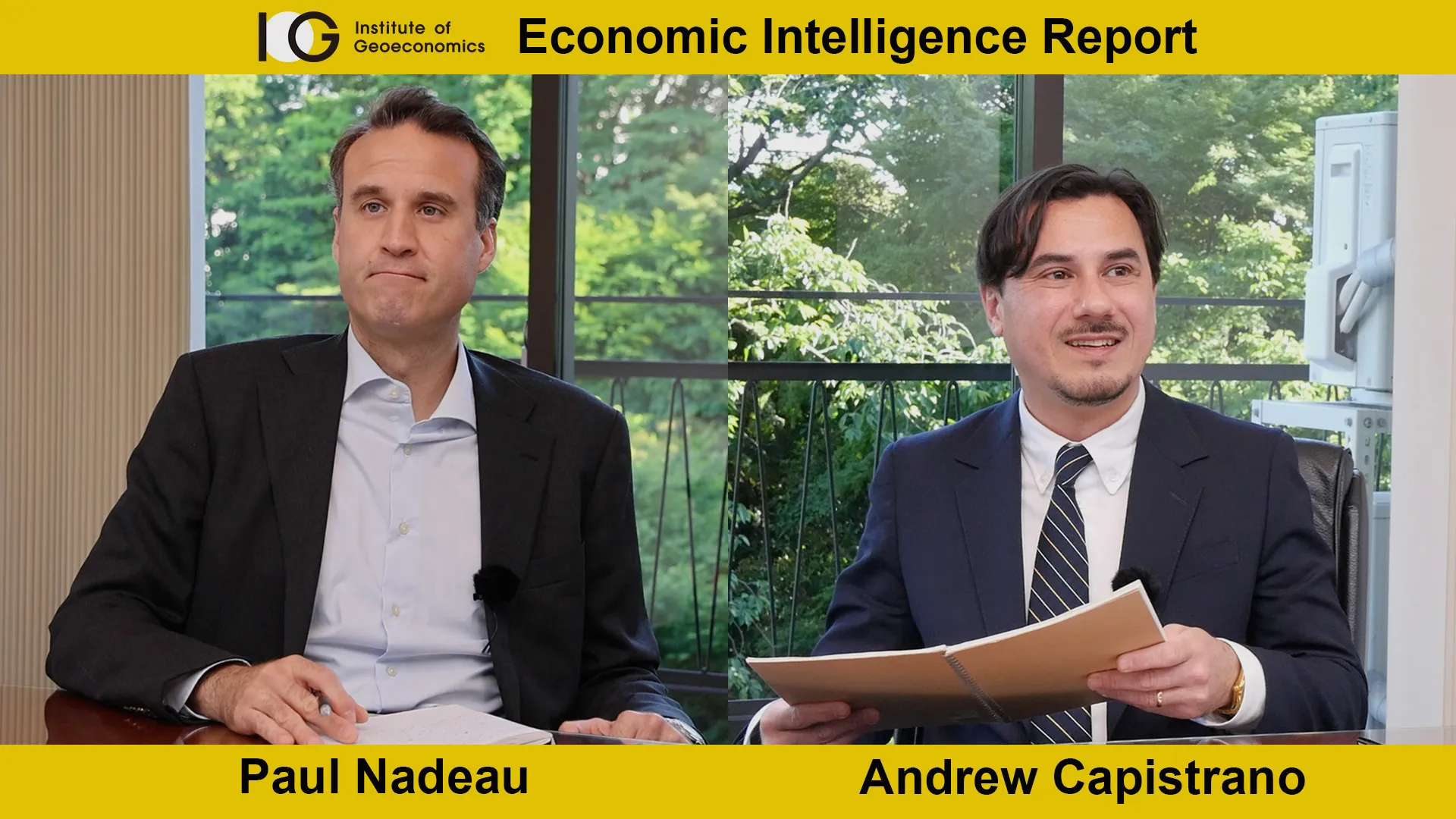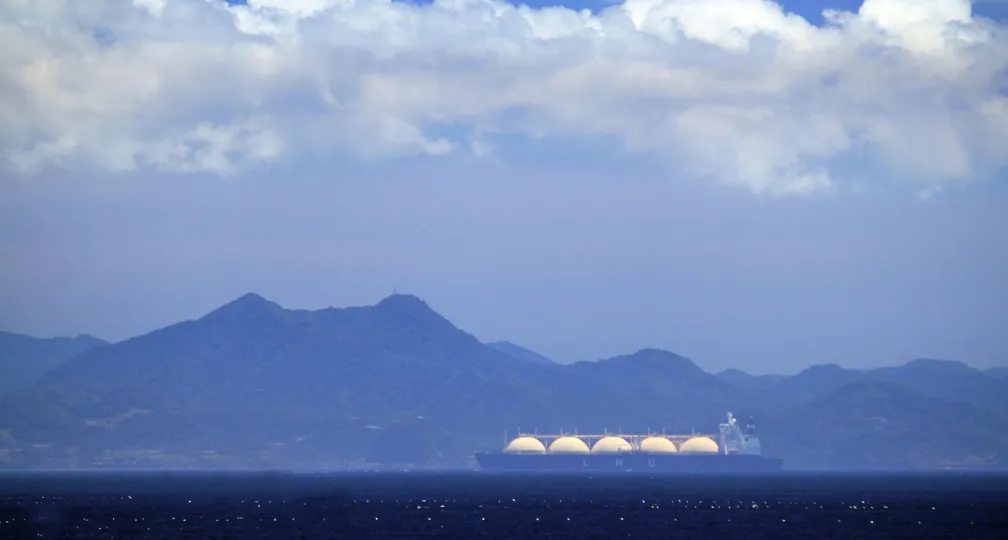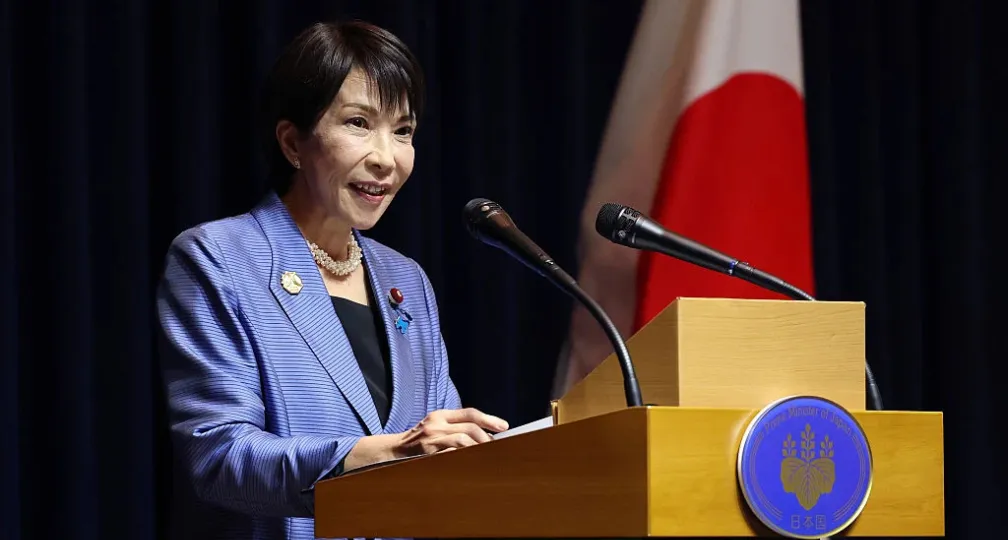IOG Economic Intelligence Report (Vol. 2 No. 17)

The latest regulatory developments on economic security & geoeconomics
New U.S.-Vietnam Cooperation: The United States and Vietnam elevated their relations to a comprehensive strategic partnership, the highest level in Vietnam’s diplomacy along with countries like China and Russia, during U.S. President Joe Biden’s trip to Vietnam on September 10. Specifically, the two countries signed a memorandum of cooperation for Vietnam to receive funding from the International Technology Security and Innovation Fund (ITSI) which was created under the CHIPS Act passed last year to provide $500 million to “ensure a more diverse, resilient, and secure global semiconductor supply chain”. The United States also set aside $2 million for training workers in the assembly, testing, and packaging of semiconductors in Vietnam.
Both countries also established the Vietnam-U.S. Science and Technology Agreement for Research (VUSTAR) to improve collaboration in the fields of health and medical science, AI, biotechnology, and more, and the establishment of the Developing Electronics & Leading Technology Advancement Partnerships (DELTA) Network which is designed to bring together local governments and industries. Agreements were also reached on rare earths development, training & education, financing, energy, and climate resilience.
EU Launches Investigation into EVs from China: The European Union is launching an investigation into state subsidies for China’s electric vehicle industry. European Commission President Ursula von der Leyen said that the price of EVs from China is “kept artificially low by huge state subsidies…this is distorting our market” in her annual address to the European Parliament. Currently Chinese EVs occupy 8 percent of the European market, but being priced roughly 20 percent less than EU-made EVs has led analysists to believe that this share of the European market may rise to 15 percent by 2025. The EU has announced a plan to effectively ban combustion-engine vehicles by 2035, creating a European market for EVs that risks going to Chinese manufacturers rather than those in Europe.
Another Round for IPEF: The fifth round of negotiations for the Indo-Pacific Economic Framework (IPEF) concluded on September 16 in Bangkok, Thailand. An agreement was reached on a process for reporting and elevating unfair labor practices in member countries’ supply chains but will not include penalties or coercive mechanisms to respond to such practices.
Inside U.S. Trade reported on September 11 that IPEF’s trade facilitation chapter will include obligations to implement the World Trade Organization’s (WTO) Trade Facilitation Agreement (TFA) and even go beyond it in some regards. According to the report, the trade facilitation chapter is one of the most advanced and least controversial in the agreement. The WTO’s TFA sets out provisions to expedite the movement of goods beyond tariffs through streamlined customs procedures, harmonizing paperwork, and other efforts to remove red tape at borders.
Support for Japan’s Fisheries: Japan announced an emergency fund of 20.7 billion yen ($141 million) on September 4 to assist exporters harmed by China’s import ban on Japanese seafood. The new fund is in addition to 80 billion yen ($547 million) previously allocated to support Japanese fisheries and seafood processing facilities in anticipation of backlash against Japan’s plans to discharge treated water from the Fukushima Daiichi nuclear plant. The funds will be used to find new markets for Japanese seafood and to fund government purchases of seafood products. Mainland China is the biggest overseas market for Japanese seafood, accounting for 22.5 percent of Japan’s total exports, but make up a limited portion of Japan’s overall trade with China. Chinese imports of Japanese seafood were down 68 percent in August.
Aluminum Duties Will Stay: The U.S. International Trade Commission (USITC) ruled on September 8 in favor of keeping antidumping and countervailing duties in place on imports of aluminum foil from China. The duties were originally implemented in 2017 under the Trump administration for a period of five years. The ITC determined unanimously that the duties should remain in place.
Analysis: Can Economic Security Coexist with Globalization?
If geoeconomics has a buzzword, it’s “economic security”. This makes sense – lockdown procedures in response to the COVID pandemic revealed vulnerabilities in the world’s supply chains as ports closed and factory production slowed. China, the United States, and others have been more willing to leverage economic assets for geopolitical gains or even punishment. The use of economic tools to respond to violations of the international order have brought attention to possible blowback and unintended consequences. And the transition to cleaner technologies in response to climate change have put the ability to secure certain minerals and technologies at a premium, especially since many of these are concentrated among geopolitical rivals. Given the shocks to the system and the shifting geopolitical dynamics resulting from the (so far) steady rise of a massively large economy, it’s natural that economic security is getting so much attention.
Except that it’s not exactly new or novel to link economic security with national security. The idea that by increasing connectivity and improving welfare it would be possible to reduce the odds of catastrophic war was the entire point of the post-World War II international order. This was a very
deliberate goal of the designers of the postwar order , contributed to peace in Europe and Asia, and led to the greatest welfare increase in modern history. While there are obviously caveats and qualifiers to the success of the postwar order, it was possible to achieve both economic security and globalized economies.
Of course, no order lasts forever and the world finds itself in very different place today than it did after World War II. Part of this is because economies in the modern world are much better off and have more power, agency, and interest in shaping a global order than U.S. counterparts had in 1945. While globalization helped encourage many countries to liberalize their politics at the same time they liberalized their economies, several important examples, particularly China, not only failed to politically liberalize but became adept at exploiting its networks of interdependence to achieve geopolitical gains. Networks that were supposed to become networks of cooperation have found themselves just as easily exploited for coercion and raising the possibility that these networks can create as much risks as opportunities.
Domestically, a key difference today is that it’s easier for decisionmakers to link economic security with underlying concerns about the costs of liberalization. In the United States, the dearth of protections for workers dislocated by trade (or otherwise) has created a large and solid constituency that is dead-set against trade liberalization. Even firms might begin to use economic security as an excuse for rent-seeking. If exporting firms believe that acquiescing to labor demands may make them less competitive internationally, firms may be more willing to go to the White House to ask for protection from foreign imports, a point recently made by Bloomberg’s Shawn Donnan.
Rather than trying to fix what’s broken about the international system and redouble on its underlying objectives, the choice is instead to call it obsolete and search for something new. The Biden administration clearly seems to think that the tide has turned from era of liberalism and efficiency towards competition with authoritarianism and a need for democratic consolidation. It’s reflected in their approach to trade agreements, technology strategy, and more. U.S. geoeconomics as it’s now defined is defensive, even coercive, rather than offering a proactive, affirmative vision of global order. And given the size and importance of the U.S. economy, U.S. behaviors will engender reactions and countermoves downstream as economies try to adjust to the behavior of the world’s larges economy. Even though those economies may, while still having concerns about economic security, have more faith in globalization than the United States.
If enough decisionmakers and stakeholders have decided that economic security can’t coexist with globalization, that could have some dangerous implications for the international system. Economic geostrategy must remain capable of building not just economic networks but patterns of interaction that extend beyond the formal networks and into the system as a whole. For economic geostrategy to be effective in the sense of changing behavior, it needs not just coercive tools like sanctions and export controls to punish opponents and deter behavior but also offer something compelling to incentivize compliance and attract support. For now, there’s a lot of the former but much less of the latter. Without that, it will be much harder to drive growth in the developing world or to try to harmonize interests among economies – and a world that’s poorer and more fragmented is its own risk to economic security.
Disclaimer: The views expressed in this IOG Economic Intelligence Report do not necessarily reflect those of the API, the Institute of Geoeconomics (IOG) or any other organizations to which the author belongs.
API/IOG English Newsletter
Edited by Paul Nadeau, the newsletter will monthly keep up to date on geoeconomic agenda, IOG Intelligencce report, geoeconomics briefings, IOG geoeconomic insights, new publications, events, research activities, media coverage, and more.


Visiting Research Fellow
Paul Nadeau is an adjunct assistant professor at Temple University's Japan campus, co-founder & editor of Tokyo Review, and an adjunct fellow with the Scholl Chair in International Business at the Center for Strategic and International Studies (CSIS). He was previously a private secretary with the Japanese Diet and as a member of the foreign affairs and trade staff of Senator Olympia Snowe. He holds a B.A. from the George Washington University, an M.A. in law and diplomacy from the Fletcher School at Tufts University, and a PhD from the University of Tokyo's Graduate School of Public Policy. His research focuses on the intersection of domestic and international politics, with specific focuses on political partisanship and international trade policy. His commentary has appeared on BBC News, New York Times, Nikkei Asian Review, Japan Times, and more.
View Profile-
 Japan’s Sea Lanes and U.S. LNG: Towards Diversification and Stabilization of the Maritime Transportation Routes2026.02.24
Japan’s Sea Lanes and U.S. LNG: Towards Diversification and Stabilization of the Maritime Transportation Routes2026.02.24 -
 Fed-Treasury Coordination as Economic Security Policy2026.02.13
Fed-Treasury Coordination as Economic Security Policy2026.02.13 -
 What Takaichi’s Snap Election Landslide Means for Japan’s Defense and Fiscal Policy2026.02.13
What Takaichi’s Snap Election Landslide Means for Japan’s Defense and Fiscal Policy2026.02.13 -
 Challenges for Japan During the U.S.-China ‘Truce’2026.02.12
Challenges for Japan During the U.S.-China ‘Truce’2026.02.12 -
 India and EU Sign Mother of All Deals2026.02.09
India and EU Sign Mother of All Deals2026.02.09
 Orbán in the Public Eye: Anti-Ukraine Argument for Delegitimising Brussels2026.02.04
Orbán in the Public Eye: Anti-Ukraine Argument for Delegitimising Brussels2026.02.04 Fed-Treasury Coordination as Economic Security Policy2026.02.13
Fed-Treasury Coordination as Economic Security Policy2026.02.13 When Is a Tariff Threat Not a Tariff Threat?2026.01.29
When Is a Tariff Threat Not a Tariff Threat?2026.01.29 Oil, Debt, and Dollars: The Geoeconomics of Venezuela2026.01.07
Oil, Debt, and Dollars: The Geoeconomics of Venezuela2026.01.07 India and EU Sign Mother of All Deals2026.02.09
India and EU Sign Mother of All Deals2026.02.09














